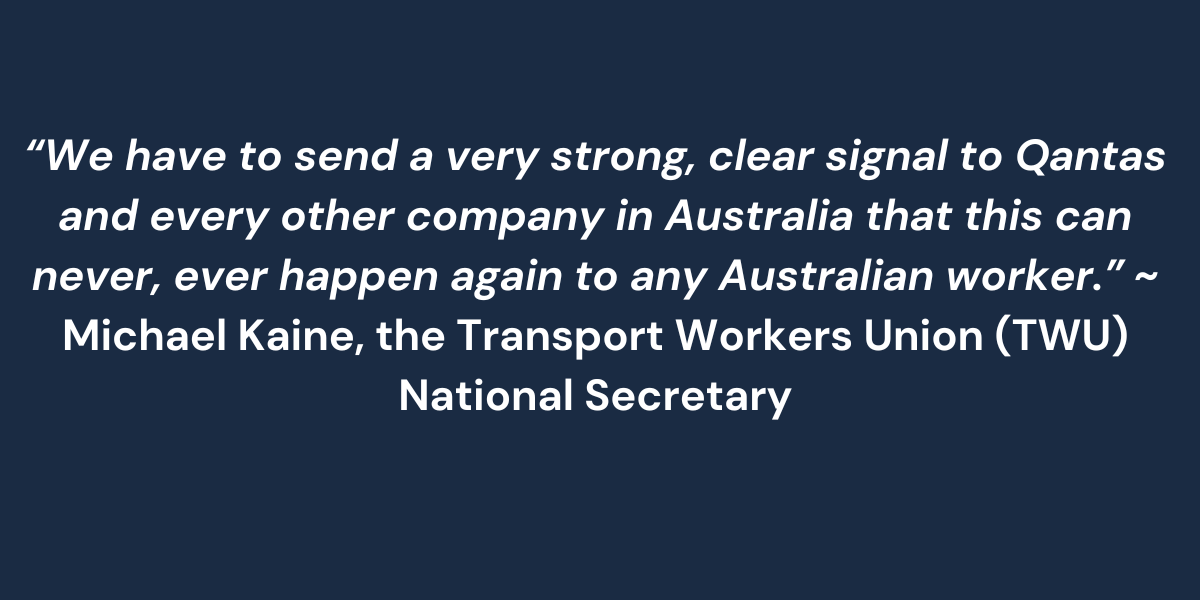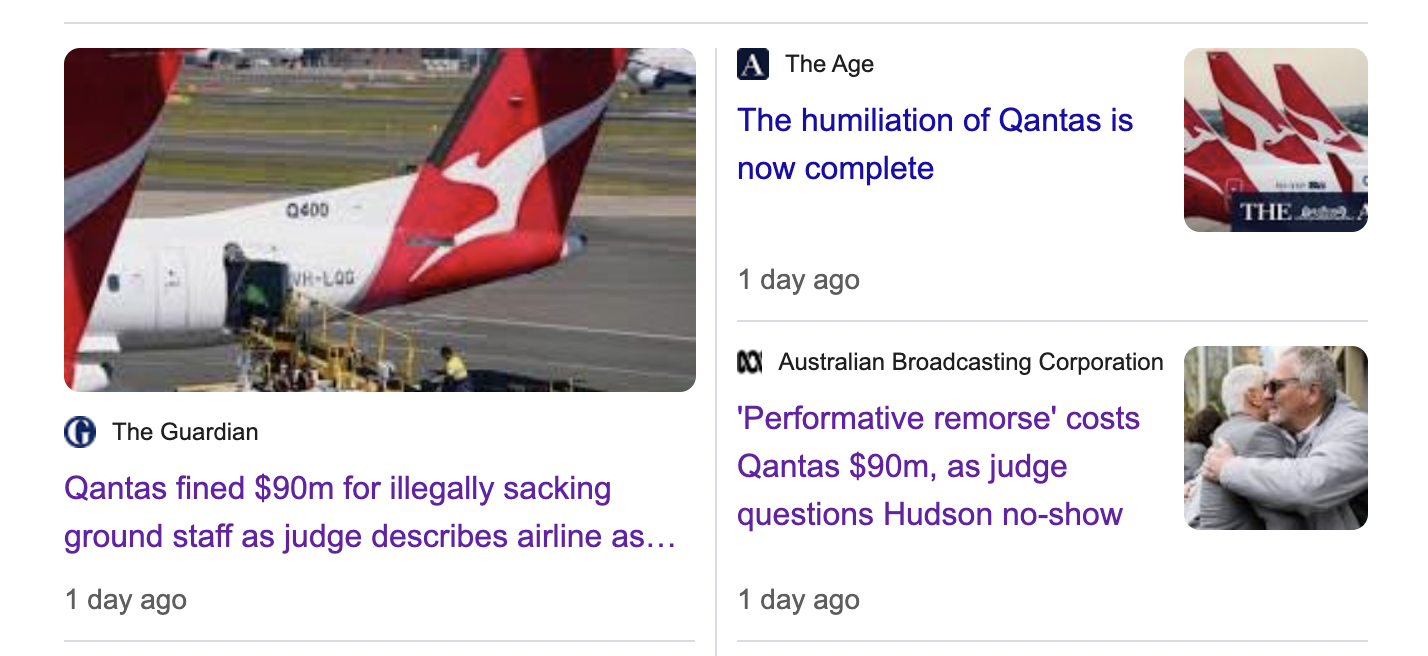.png)
Qantas has been hit with a record fine for illegally dismissing 1,820 ground staff during the pandemic. We review this and the implications for leaders when it comes to accountability and workplace risk.
Key facts
- The Federal Court imposed a $90m penalty on Qantas - the largest workplace law fine in Australian history.
- The airline sacked 1,820 ground crew in 2020, later ruled unlawful by the High Court.
- Justice Michael Lee criticised Qantas for being the “wrong kind of sorry” - showing legal defensiveness rather than genuine remorse.
- Half of the fine will go to the Transport Workers Union (TWU) to fund member support.

Implications for officers and leaders
- Accountability goes beyond legal compliance. Courts and regulators are looking at intent, behaviour, and the sincerity of organisational culture.
- Reputation risk is real. Beyond financial penalties, prolonged litigation and public criticism have damaged Qantas’ standing.
- Workforce trust is central. Large-scale decisions without genuine consultation or fair process can spark long-lasting cultural harm.

Relevance to psychosocial risk
Psychosocial hazards aren’t just about bullying or stress - they include job insecurity and organisational justice. Genuine consultation is critical to managing these two hazards.
- Officers have a duty to ensure systems are in place to consult meaningfully with staff and act on workforce risks.
- Large restructures or terminations must be managed with transparent processes, proper communication, and safeguards for wellbeing.
- Courts are willing to scrutinise not only the outcome but also the way leaders handle risk and employee impact.
What we believe is fundamental
- Follow proper legal process – seek clarity and avoid outsourcing as a workaround to sidestep obligations.
- Consult genuinely with staff and unions – explore redeployment, reduced hours, or subsidies before mass layoffs.
- Address psychosocial risks – assess impacts on job security and wellbeing, provide support services, and communicate with empathy.
- Manage reputation and culture – acknowledge mistakes early, issue a genuine apology, and offer remediation.
- Strengthen governance oversight – ensure the board verifies consultation, fairness, and workforce risk management before approving change.
We hope you found this insightful and as always, thank you for reading.
.png)
.png)
.png)